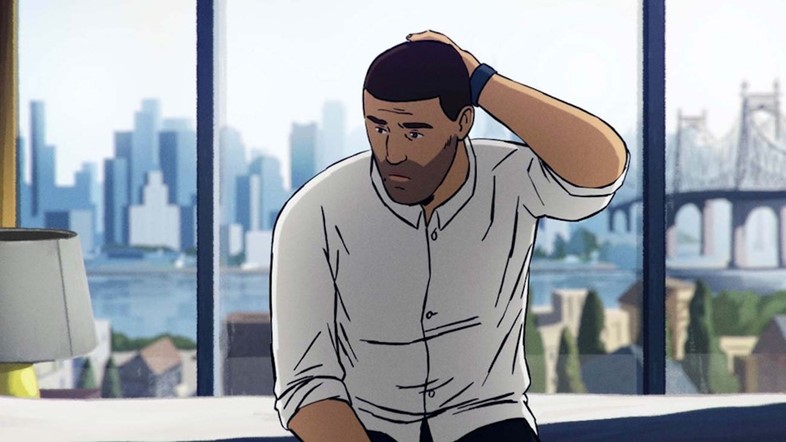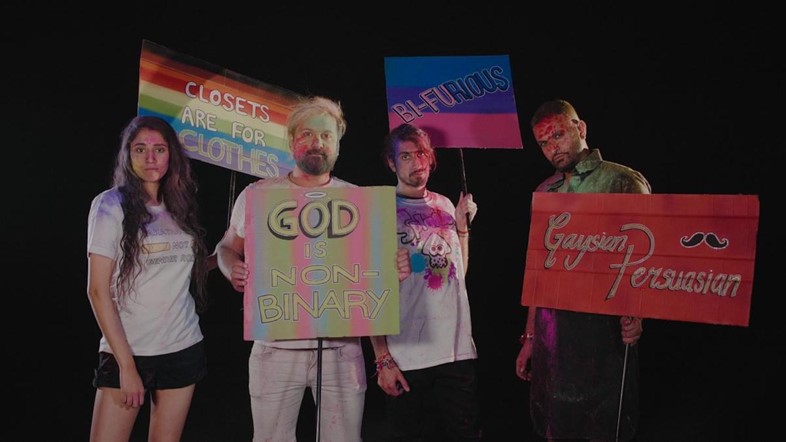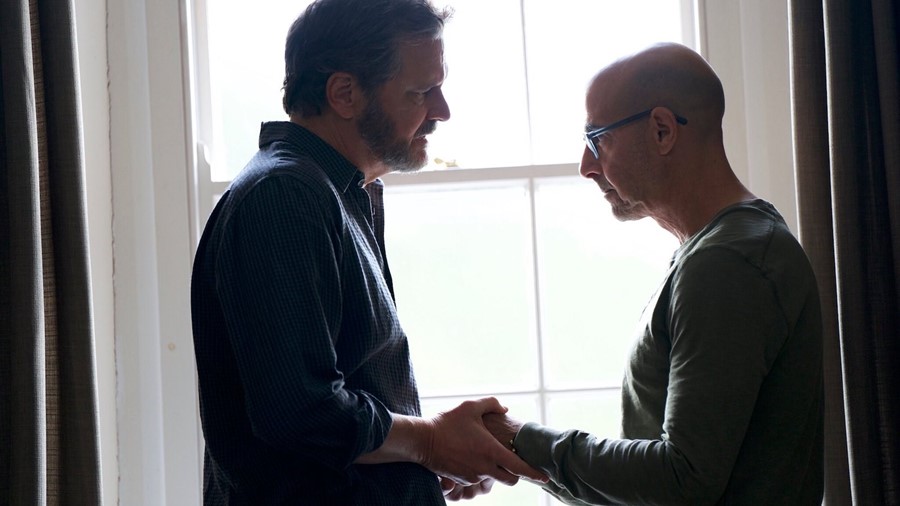James Greig explores the impact of the pandemic on queer filmmaking, and the LGBTQ films to look forward to this year
Queer cinema, much like every other cultural form, has taken a hit from the Covid-19 pandemic – though in Britain the impact was felt especially early on. In March 2020, BFI Flare: London LGBTIQ+ Film Festival was one of the first major cultural events to be cancelled because of the virus (it was originally due to begin the day after the first lockdown was imposed). And despite hopes that it would return in some semblance of normality, this year’s iteration will be digital-only – over a year since the beginning of the pandemic, the potential for people to come together is as limited as it’s ever been. So what does the future – and present – of queer filmmaking look like? How badly has pandemic impeded the development of new works? And what, if anything, do we have to look forward to? I spoke with Michael Blyth, BFI Flare’s senior programmer, to find out what’s happening with the event this year and take the pulse of queer cinema more generally.
While Blyth regrets the loss of “the community aspect, the coming together of people and the atmosphere on the Southbank”, there are some advantages to a digital approach. For a start, it’s more democratic. “For the first time, the whole of the BFI Flare Festival will be accessible to UK audiences,” he says, “it’s no longer limited to just London.” BFI Flare will also be screening around 35 short films for free, which is definitely something to watch out for. “For 12 days across the festival, everyone across the UK can access and watch this really amazing, rich selection of new queer short works.” Going forward, the festival aims to think about what has worked during the last year, in order to continue providing a high level of accessibility. The full programme will be announced on 23 February, with the festival taking place on BFI Player from 17-28 March.
It’s anyone’s guess when we’ll be allowed back in cinemas, but there’s still a pretty healthy slate of queer films to look forward to this year. The biggest hitter is probably Supernova, a drama starring Colin Firth and Stanley Tucci, which concerns a middle-aged gay couple and the strain placed on their relationship when Tucci’s character gets diagnosed with early onset dementia. Scheduled for a March release, the film has so far received positive reviews. In addition to that, Moonlight and If Beale Street Could Talk director Barry Jenkins is returning with Ailey, a biopic of choreographer and civil rights activist Alvin Ailey, who died of an Aids-related illness in 1989. Based on the high quality of Jenkin’s previous two films, this will almost certainly be excellent. Cult director Paul Verhoeven (who has a long and idionsyncratic filmography including Elle and Basic Instinct) meanwhile is releasing Benedetta, a historical drama about a lesbian nun in 17th-century Italy. There’s also Flee, a Danish “animated documentary” about a gay man living in Denmark, who was formerly a child refugee from Afghanistan, which looks fascinating (an English-language remake starring Riz Ahmed is already in the works) and, at the frothier end of the spectrum, a film adaptation of the musical Everybody’s Talking About Jamie, the story of a teenage drag queen from Sheffield, which should be an entertaining watch.

When I asked Blyth what to look out for this year, he recommended two films which were due to play at BFI Flare last year, before the festival was cancelled. The first is Cicada, which has been picked up by Peccadillo Pictures and looks set to be released around spring. “It’s a really amazing film,” he says “It’s the story of two young men who meet and have to navigate through past traumas if they’re going to find a way to truly connect with each other. I think it’s a really interesting, quite complicated film in the way that it deals with themes of trauma and abuse, the way it tackles issues around race, I think it’s a really rich and complex film that feels very current.” Blyth’s second recommendation is Pride and Protest, a documentary about queer POC activists in Britain – a theme which feels particularly relevant in light of 2020’s resurgent Black Lives Matter movement – which will be available on BFI Player from February 15.
While queer cinema is defined, for the most part, by independent filmmaking, perhaps one of 2021’s most boundary-breaking moments is set to take place firmly within the mainstream. Marvel’s Eternal, a superhero film about a race of immortal beings, promises the first same-sex kiss and the first gay couple in the franchise. This has been heralded in some quarters as a triumph of mainstream representation, but it’s worth bearing in mind that gay audiences have been stung by Disney before. A much-hyped “gay moment” in 2017’s Beauty and the Beast remake turned out to be nothing more than a brief shot of two peripheral characters dancing together. Viewers tuning into 2019’s Star Wars: The Rise of Skywalker in search of steamy lesbian eroticism, meanwhile, would have found themselves disappointed: the film’s highly-anticipated gay representation amounted to two unnamed, never-before-scene characters sharing a quick peck before the end credits. And despite the scene’s mildness, it was still removed for certain foreign markets. Whether Marvel’s Eternal will prove similarly disappointing to gay fans remains to be seen, but let’s hope the gay couple are at least afforded some dialogue. While it’s tempting to sniff at the politics of representation, there’ll probably be at least a few gay teenagers for whom it would be comforting.
Overall though, the cancellations and delays which have plagued the film industry in general have hit queer filmmaking hard, simply because these films tends to be more independent and lower-budget. The pandemic has affected small-scale productions more than big studio affairs, given the latter are better able to absorb the cost of Covid-secure workplaces. Arts funding is already at risk and if the UK government responds to the post-virus recession with further austerity (which unfortunately seems like the direction of travel) this will only get worse. For the creative industries in general, the future looks difficult. Is it possible, then, that the pipeline of independent LGBTQ films will start to dry up? “I think it’s a real risk that queer film production might take a hit,” says Blyth, acknowledging that the years ahead present considerable challenges. But he argues that adversity breeds creativity (a sentiment I’m not sure I entirely agree with).

“What I’m really excited about is to see actually how this past year shapes the stories that queer filmmakers are going to be telling and the conversations that we have,” Blyth says. We’re already starting to see this in low-budget short films that people are submitting to us.” The pandemic won’t necessarily result in queer cinema which deals explicitly in coronavirus themes, romantic comedies set during lockdown or whatever, but they will shape a new sensibility. “I think these things feed into the kind of cultural zeitgeist and creative modes of expression,” he continues. What this actually will look like isn’t clear, but we shouldn’t be resigned to the death of the medium just yet.
The political struggles of the past year, too, have shown how important it is to highlight subjectivities other than the white, the cisgender and the middle-class. Since the pandemic began, it’s been harder than ever to participate in the queer community (not that such a thing exists as a cohesive entity). In the absence of real-life community, it’s been a time for many of us to reflect on the importance of all the things we haven’t been allowed to do – whether that’s protest, nightlife, or activities as simple as going to the cinema. It will be interesting to see how this renewed appreciation of sociality plays out in queer filmmaking. It could well feed into a new vitality.
BFI Flare: London LGBTIQ+ Film Festival takes place on BFI Player from 17-28 March 2021.
